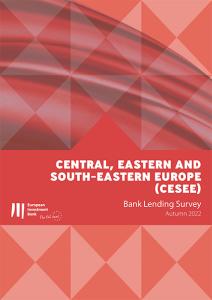The European Bank Coordination Initiative (Vienna Initiative) seeks to safeguard the stability of the financial sector in Central, Eastern and South-Eastern Europe (CESEE).
Conceived in early 2009 as an emergency response to the threat of an uncoordinated deleveraging of international banking groups in emerging Europe, it has now evolved to assume a permanent role in addressing challenges and risks faced by the region’s financial sector.
The creation and development of the Vienna Initiative has been driven by the EIB, the European Commission, the EBRD, the IMF and the World Bank. Participants include the leading commercial banks of the region, central banks and national banking supervisory and regulatory authorities.
Maintaining credit during the crisis
The Vienna Initiative has provided a forum for decision-making and coordination, which has helped prevent a systemic banking crisis in the region and ensure that credit kept flowing to real economies during the crisis. The Initiative specifically sought to limit the negative fallout from uncoordinated policy responses to the global financial crisis and to avoid a massive and sudden deleveraging by cross-border bank groups in emerging Europe.
In addition, the EIB, the World Bank and the EBRD acted to maintain a flow of credit into these economies. Over the next years, International Financial Institutions involved in the initiative put together two joint action plans for the region with a combined total of €67 billion. These funds were used for investments to stimulate economic growth.
Featured publications
Coordinated, long-term policy action
After the immediate crisis abated, efforts turned to coordinating longer-term action as well as countering any re-emergence of financial stress. After new systemic concerns emerged in late 2011, it was decided to formalise these arrangements. The result was the “Vienna Initiative 2.0,” launched in January 2012.
Specifically, the objectives of the Vienna Initiative 2.0 are to:
- avoid disorderly deleveraging
- ensure that potential cross-border financial stability issues are resolved
- ensure that policy action (notably in the supervisory area) is taken in the collective interest
Recent areas of work within the Vienna Initiative have included:
- assessment of the effectiveness of financial instruments offered by IFIs
- issues of financing innovation in CESEE, including a study co-authored by the EIB on the “State of innovation finance in CESEE”
- monitoring credit market developments in the region with a particular focus on non-performing loans
- assessment of the consequences of EU banking regulation and supervision measures on cross-border banking in CESEE
For more information, visit the Vienna Initiative website: http://vienna-initiative.com



